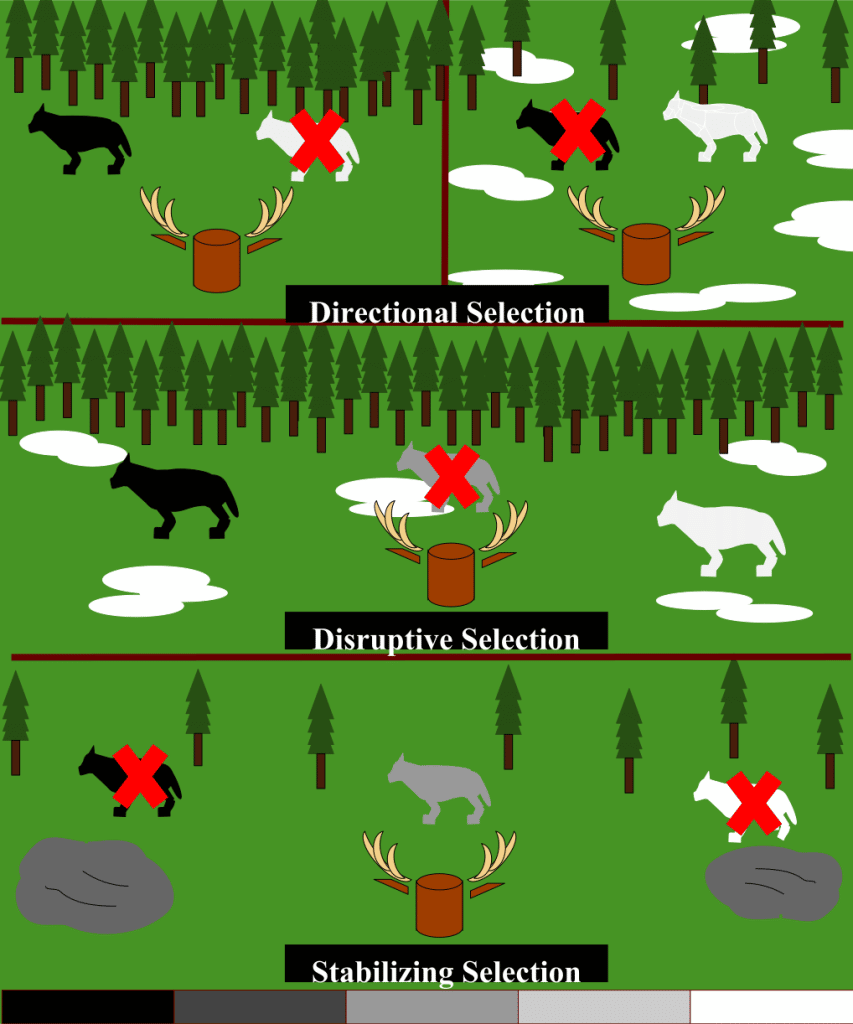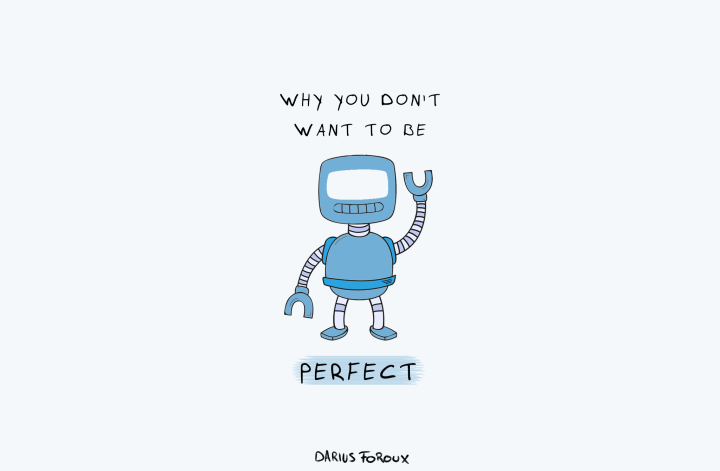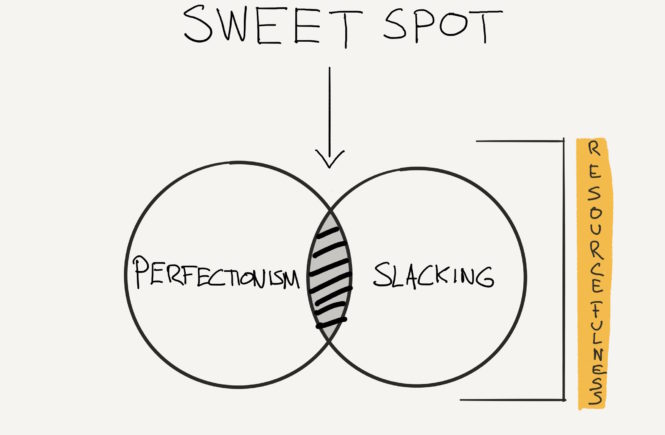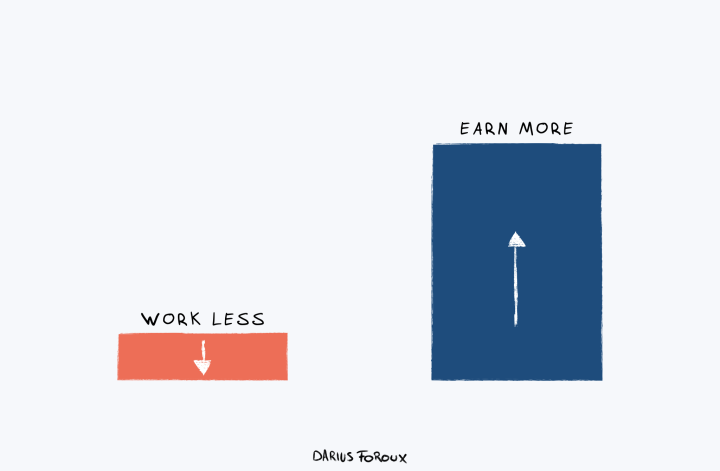Almost 100 years ago, the Russian biologist, Ivan Schmalhausen, developed the Stabilizing Selection theory. He described how a species that evolves to be excellent at one thing tends to become more unsafe to another. That’s why there are no perfect species.1Source: Smithsonian Institute
For example, a tall tree captures more sunlight but it becomes more susceptible to wind damage. Siberian huskies need a lot of muscle to pull sleds, but they have to remain light enough to stand atop the ice.
Among humans, babies of low weight lose heat more quickly and get ill from infectious diseases more easily. Meanwhile, larger and heavier babies are more difficult to deliver through the pelvis.2Source: Memorial University That’s likely why most people have “average” height. It’s easier for humans to survive when they’re born with just the right birth weight.
There are always inefficiencies in nature. Becoming perfect tends to backfire, so species rarely evolve to become perfect at anything. These imperfections are what allow us all to survive and thrive.
Become an expert. But remain adaptable
When it comes to life and career, I often talk about the importance of expertise. No one wants to hire an average marketer, designer, consultant, and so forth. People demand the best.
But that doesn’t mean we should focus on being “perfect” at one thing. That’s the difference between being an adaptable expert who can dominate an industry. And a jack-of-all-trades who’s only average at everything and best at nothing.
A good example is the rapper, producer, and entrepreneur, Dr. Dre.
- He started rapping in 1985. He became famous and his songs were major hits. But fame as a rapper doesn’t last forever.
- By the 2000s, Dre focused on producing other artists. He was highly successful there too.
- Finally, as an entrepreneur, he co-founded and sold his headphone company, Beats Electronics, to Apple for $3 Billion in 2014.3Source: NY Daily News By 2019, Forbes listed him as the 2nd-richest figure in hip-hop (above Kanye West, Drake, and Diddy).4Source: Forbes
That’s almost 40 years of dominating a whole industry that’s constantly changing and evolving. In that time, various other rappers have become wildly famous and then eventually forgotten. But not Dr. Dre.
He evolved and adapted to the times and industry.
I’ve observed that all successful people who remain successful are like that. They don’t focus on perfecting one thing only. Instead, they grow with and adapt to their environment.
Progress, not perfectionism
We all want to live better lives. The vast amount of self-help blogs and books is plain evidence of the demand that people have in trying to be better.
But as the Stoic philosopher Epictetus reminds us:
“We don’t abandon our pursuits because we despair of ever perfecting them.”
Having an all-or-nothing mindset sets us back. This often keeps people from developing and sustaining things that help them succeed. Like waiting for the perfect conditions, before applying for a different company. Or trying to make your startup product/service “perfect” before releasing it to the market.
It would be great to live in an ideal world where everything goes as planned and disruptive events like war and pandemics don’t happen. But as the Roman philosopher and emperor, Marcus Aurelius said:
“Don’t go expecting Plato’s Republic [which idealized a utopian city-state ruled by an all-wise philosopher-king]; be satisfied with even the smallest progress.”
Progress means making the best of what we’ve got.
A progressive mindset, unlike a perfectionist, allows us to focus on how things are. Rather than how we wish them to be.
This allows us to be self-aware of our goals. And whether our environment corresponds to those goals.
What environment fits you best?
A person’s environment and how they react to it determines how successful they can become.
Going back to evolution selection, scientists often refer to these 3 models where the environment plays a major role.
- Stabilizing — The theory developed by Russian biologist Ivan Schmalhausen, as mentioned above. Now that the world is growing increasingly global, people who develop universal skills succeed more than those who try to be perfect.
- Directional — In this environment, certain traits are favored over others. For example, a white wolf camouflages easily in the snowy terrain. While black wolves thrive more in mountainous regions filled with dark-colored vegetation.
- Disruptive — This environment favors extreme traits, and those in the middle are at a disadvantage. In a tundra, both the black and white wolves can camouflage easier in the snow or dark rocks/trees respectively. But a gray wolf would have a harder time finding a suitable hiding place.

To relate these patterns in human society, we can look at major world events. Both disruptive and directional selection often happen during global crises or technological breakthroughs
Like Zoom, which boosted sales during the early months of Covid, while most brick-and-mortar shops closed down. Being adaptable is a given. But if your environment isn’t suitable for you, it becomes harder to grow and thrive.
Being a “serial entrepreneur” who works on a laptop in the Caribbean paints the typical picture of Instagrammable success. But is that the lifestyle you truly want? Is that lifestyle in your best interest in the long run?
There are people who excel in corporate working environments. So freelancing and entrepreneurship may not be for them. Likewise, if someone knows they hate working in a company, it’s best for them to develop a side hustle they can eventually work on full-time.
When you set your goals according to what you really want (and not other people’s expectations), you focus only on the things that bring you closer to your objectives.
After all, when you live a life you’re actually happy with, isn’t that “perfect” enough?




